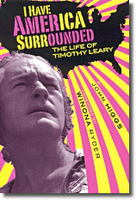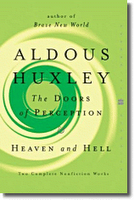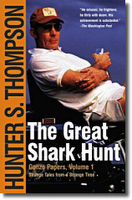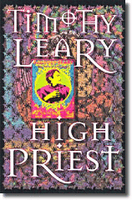 John Higgs is the author of I Have America Surrounded: The Life of Timothy Leary, published in America by Barricade Books; it is the first full biography of the pioneer of psychedelic drugs.
John Higgs is the author of I Have America Surrounded: The Life of Timothy Leary, published in America by Barricade Books; it is the first full biography of the pioneer of psychedelic drugs.Winona Ryder, Leary's goddaughter, wrote the introduction.
Higgs recently came up with a top ten list of psychedelic non-fiction books for the Guardian. (Of course, the list has 11 titles.)
Here a few of the titles:

The Doors of Perception by Aldous HuxleyClick here to read about the other eight titles.
Huxley's account of his experiments with mescaline in the 1950s make psychedelic use sound like a perfectly reasonable and admirable pursuit which would bring credit to any middle class gentleman. Huxley never wrote a dull sentence in his life and this is certainly one of his best works. If its influence of the likes of Timothy Leary or Jim Morrison is considered, then it could easily be his most culturally important book.
The Great Shark Hunt by Hunter S. Thompson
Fear and Loathing in Las Vegas is usually considered Thompson's best work, but I much prefer The Great Shark Hunt. It's a huge book, a collection of the best of his journalism from the 60s and 70s, and it shows that Thompson had a far greater range than his later reputation suggests. His essay about Hemingway's death, in which he tried to understand why such a once-vibrant man ended up blowing his brains out in small town America, is particularly poignant following Thompson's suicide.
High Priest by Timothy Leary
Leary was a prolific writer, producing over 30 books and hundreds of essays and papers. I've chosen his autobiographical High Priest (1968) for this list as I think it is one of his most accomplished pieces of writing. It captures both the drug experience and the sense of discovery so well; the moment a scientist realises that the implications of their work are so huge that their life will never be the same again.
Learn more about I Have America Surrounded here.
Click here for a Q & A with Higgs. Click here for Higgs' interview with Paul Krassner.
--Marshal Zeringue







